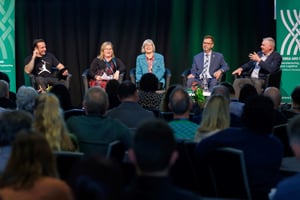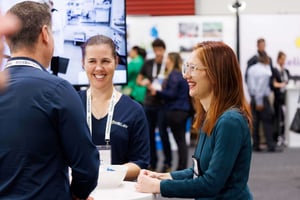
Keynote speakers
Learn about our inspirational keynote speakers.
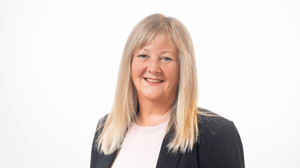
Penny Simmonds is the Member of Parliament for Invercargill, elected in 2020. At the 2023 General Election, Penny retained the seat of Invercargill. She is the Minister for the Environment, Vocational Education as well as the Associate Minister for Social Development and Employment. Penny is a member of the Cabinet Economic Policy Committee and the Cabinet Social Outcomes Committee.
Prior to her election to MP, Penny was Chief Executive of Southern Institute of Technology (SIT) from 1997 – 2020. Penny was an Advisory Board Member of Venture Southland, and has been involved in the Southland Regional Development Strategy since its inception and was on the Shareholders Advisory Board of the newly formed Economic Development Agency for Southland. She was a Trustee of Community Trust South from 2012 to 2019, and Chair from 2018 to 2019, and Director of Southern Lakes English College. She was Chair of Hockey Southland for 10 years finishing that role in 2017 when she also completed 2 years as President of New Zealand Hockey. Penny is also a former Director of the Southland Museum and Art Gallery and former Board Member of the Southland District Health Board and Southland disAbilities Services. Penny was a recipient of the Woolf Fisher Fellowship in 2000.
Penny was made a Companion of the New Zealand Order of Merit in the 2016 New Years’ Honours list.
Penny is married with three adult daughters and five grandchildren.
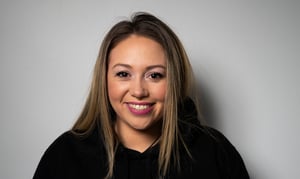
Lobbying: Evil, or just misunderstood?
For too long lobbying has been viewed as a practice that takes place in the shadows of Parliamentary corridors between “mates” and “comrades”, with dramatised representations of lobbying across film and television doing little to help.
But lobbying is an important tool for everyone's engagement toolkit and when done well, it can be the difference between your proposals getting a lukewarm “maybe” and an enthusiastic “hell yeah!”
So how much do you really know about the industry in New Zealand? Are you missing out on unseen opportunities? Could lobbying transform the way in which your own organisation undertakes its engagement? Holly Bennett will unpack these questions and more, as she breaks down the good, better and best practice of one of the most underrated—and under-utilised—engagement tools in Aotearoa.
An outspoken advocate for improved transparency in the government relations industry, in this keynote Holly will also explain how she has adopted a bold approach to lobby for improved accountability in the sector. Plus walk away with practical advice for the waste, resource recovery and contaminated land sectors, as she takes a look at Budget 2025 live from the conference with you.
About Holly
Holly (Te Arawa, Ngāti Whakaue, Ngāti Pikiao) is the managing director of lobbying firm Awhi, and founder of government relations training organisation Engage. She is driven by a keen desire to ensure the government relations industry is accessible to all. Holly was named Young Business Person of the Year at the Newmarket Business Awards in 2022, while Awhi won the People and Capability Category at the MWDI Māori Business Women Awards. In 2023 Holly was named in the University of Auckland’s 40 Under 40 list. She is a lawyer by trade, and a former columnist for National Business Review (NBR) and Newsroom.
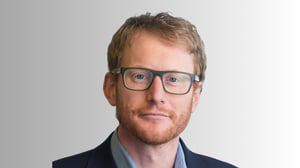
Advocacy in the NGO space: Representing the public interest in an unequal system
Public interest groups often lack the financial backing or access to decision-makers as industry lobby groups. This makes advocacy work pretty tough at times. Even when access to decision makers is available, the resources available to analyse issues and prepare a compelling case are regularly stretched.
Concerningly, this means people are often left without a voice. Or that voice struggles to be heard on the same terms as corporate interests.
In this keynote, Jon will reflect on five years as CEO of Consumer NZ, his experiences working with different governments on major issues and discuss the power imbalance many organisations in New Zealand face when advocating on behalf of citizens.
Using insights from Consumer's research and investigations in the greenwashing, energy and right to repair space, Jon will share how the Consumer team has used those findings to advocate for change and a fairer society for all New Zealanders.
About Jon
Jon Duffy is the Chief Executive of Consumer NZ. Jon has made a career of fighting for consumers. He has a deep interest in sustainability and the environmental impacts of consumption, data ethics and promoting equity. Jon was previously the Assistant Privacy Commissioner, Head of Trust & Safety at Trade Me and worked as a Senior Investigator at the Commerce Commission.
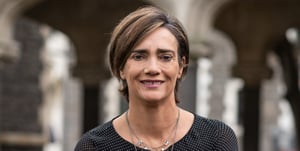
Thriving through uncertainty and change: lessons from science and life
How can we navigate ongoing stress and disruption, and continue to perform at our best while still looking after ourselves and each other? This is the question that’s driven Dr Lucy’s work in resilience psychology for well over a decade. Given we hear so much about ‘burnout’ and ‘resilience’ Dr Lucy is joining us to unpack these words and leave us with some practical, no-cost tips you can use immediately to benefit both your own and your teams’ wellbeing and resilience.
A best-selling author, globally respected thought leader, and blogger for Psychology Today, Dr Lucy offers a one-of-kind perspective on what it takes to navigate change. Part inspirational speaker, part ‘pracademic’, Dr Lucy is known as a beautiful story teller and for her real-world application of science.
About Dr Lucy
Dr. Lucy Hone is a world-leading authority on resilience, blending academic expertise with personal experience. As director of the New Zealand Institute of Wellbeing & Resilience and a Psychology Today blogger, she has helped thousands globally develop practical resilience strategies. Her TED Talk, Three Secrets of Resilient People, has been viewed over nine million times.
Lucy’s expertise is grounded in research—she holds a master’s degree in resilience psychology from the University of Pennsylvania and a PhD in wellbeing science from AUT University. Her work is widely published in peer-reviewed journals and cited internationally. As a self-described "pracademic," she bridges the gap between research and real-world application, making resilience science accessible and actionable.
Her bestselling book, Resilient Grieving, offers a powerful framework for navigating loss, shaped by personal tragedy. She also co-authored The Educator’s Guide to Whole-School Wellbeing, supporting schools in fostering resilience. Featured in The Guardian, The Washington Post, and the BBC, Lucy is committed to helping individuals and organisations overcome adversity and embrace fulfilling lives, proving that resilience is not just possible—it’s teachable.
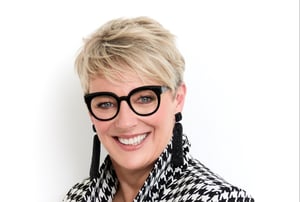
Being BOLD!
Being bold is the result of believing in yourself, owning your energy, living on purpose and deciding what you want to do, be and have in your world.
Lisa has been living large for over 25 years! Specialising in energy mastery and business transformation, Lisa teaches people to take responsibility for their energy and step into their potential. Through vivid storytelling and humorous insights, Lisa demonstrates how to blend authenticity and achievement. Integrating our needs as humans with the demands of work. Learn how to know your worth and have confidence in your abilities. To understand what we can and cannot control. To be bold and make a difference.
About Lisa
Having worked in multiple industries, Lisa is obsessed with helping people to be better - better leaders, better employees and better entrepreneurs. She understands the tricky balance of being all things to all people running several business and being a mother of four children. Lisa is guaranteed to leave you inspired, energised and ready to change the way you think about life. Passionate about inspiring action and helping people get out of their own way, Lisa has the unique ability to deliver heavy messages in a light and relatable way. After more than a decade on stage, Lisa is consistently top-rated in conference evaluations. Participants love her straight-talking, refreshing wisdom and infectious laughter. She's written seven books, with her latest focussed on energy, bringing awareness to the importance of getting, guarding and giving energy.
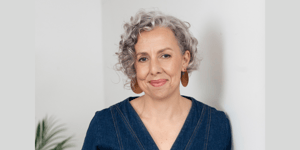
Effective Science Communication
- frame your communication to get your audience to see the issues as relevant to them
- influence government policy through communities – get constituents to advocate on your behalf
- collaborate and be strategic with who you work with
- discover ways that your current communication may be undermining your objectives.
About Jess
Jess is a public narrative researcher and advisor. She gained her PhD in Health Psychology from Victoria University in 2003. In roles across government and the not for profit sectors she has focused on placing best knowledge and equity at the heart of decision-making. Since 2017 Jess has been researching and implementing narrative strategies that engage, deepen people's thinking, and improve decision-making with regard to our big social and environmental challenges. Jess is author of A Matter of Fact. Talking Truth in a Post-truth World (2018). A BWB text. As well as being the co-founder of The Workshop, Jess is the Director of Narrative and Strategy.
Contaminated Land Management keynote speakers
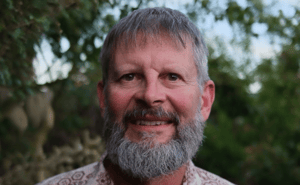
The Beneficial Reuse of Biowastes to Improve Contaminated Soils
The strategic reuse of biowastes offers a transformative solution for rehabilitating contaminated and degraded soils while reducing the negative environmental effects associated with biowaste disposal. Potentially, much of New Zealand’s biowastes, derived from municipal and agricultural sources, could be used to not only increase the fertility of degraded soils, but also immobilise inorganic contaminants and, in some cases, accelerate the degradation of organic contaminants. Biowaste-amended soils could be returned to agricultural use or used to support valuable NZ-native vegetation. Biowaste-derived soil conditioners such as composts and biochar, improve the physicochemical properties by increasing water-holding capacity, reducing surface crusting, and promoting nutrient cycling in contaminated soils that are often low in organic matter.
By aligning biowaste reuse with circular economy principles, this approach offers a scalable model for global soil remediation, combining ecological restoration with climate resilience.
About Prof Robinson
Professor Brett Robinson - School of Physical & Chemical Sciences, University of Canterbury - seeks to create economic and environmental value from biowastes by ensuring that biowastes and the nutrients they contain improve our soils rather than degrade our waters. While the programme is based on Environmental Chemistry, it requires significant contributions from ecologists, ecotoxicologists, microbiologists, experts in land management, social scientists and Māori knowledge.
Confidence in New Zealand’s food products and the marketing of NZ as “100% pure” rely on our land-based industries combining a high level of production while minimising the entry of contaminants into foods or local environments. Biowastes (wastes of biological origin) are arguably the most important contributor to the degradation of New Zealand’s economy and environment when they enter waterways, contaminate high-value land, or require costly disposal. Biowastes in the form of nutrient-rich animal and human wastes currently contaminate rivers, lakes, and harbours. Most of New Zealand’s biosolids go to landfills - at great expense.
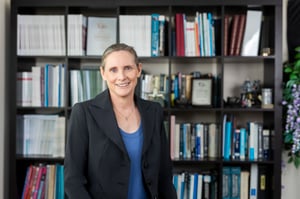
Making risk assessment work for you
While not many sites in New Zealand involve the conduct of detailed assessments of risks to human health and the environment, many do not realise that the standards and other Tier 1 guidelines used in site assessment, are based on a risk assessment. We use standards and guidelines in many ways often without realising that these are risk based, and as a result they come with underlying assumptions. It is important to understand what sits behind these numbers so they can be properly applied so that human and environmental health is protected.
But what happens when a more detailed assessment of risk is required? There are a range of tools that can be used to address risks to human health and the environment to refine a Tier 1 assessment. These tools are commonly used internationally and focus assessments on key chemicals, media and exposure pathways. This approach can provide for savings on remediation costs and efficient use of resources. However, such approaches require good communication with clients and regulators to ensure a good outcome.
Dr. Jackie Wright’s talk will take you through the key aspects of setting standards and guidelines, how to ensure that you select the right guidelines for a site, what risk assessment tools are available to refine assessments and how these can be implemented to protect health and the environment in a cost-efficient manner.
About Dr Wright
Jackie Wright is the Director/Principal of Environmental Risk Sciences Pty Ltd. She has more than 30 years’ experience in human health and environmental risk assessment in Australia.
Experience includes the conduct of numerous risk assessments of varying complexity, leading and developing a national risk practice group for a major consultancy, providing professional training and direction, developing technical standards and guidance, developing appropriate risk models, providing peer-review and expert evidence.
Jackie has been heavily involved in the development of national guidance and investigation levels as presented in the National Environment Protection Measure (NEPM) for Site Contamination (2013), CRC CARE Technical Guidance on Petroleum Vapour Intrusion and Silica-Gel Cleanup, Australian Crime Commission Assessment and Remediation of Clandestine Drug Laboratories (2011) and Australian Voluntary Code of Practice, Assessment, remediation and validation: Former clandestine drug laboratories and other methamphetamine contaminated properties.

